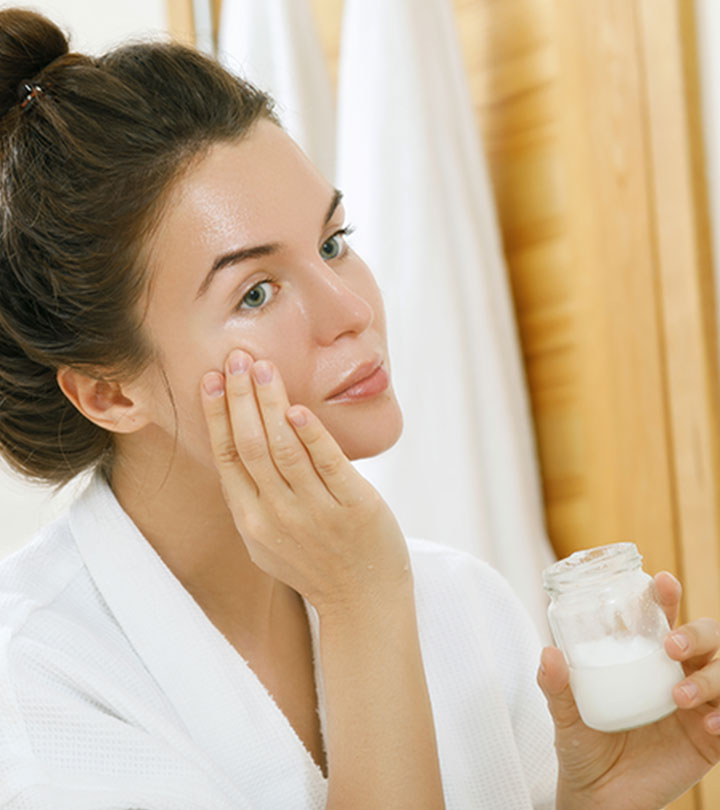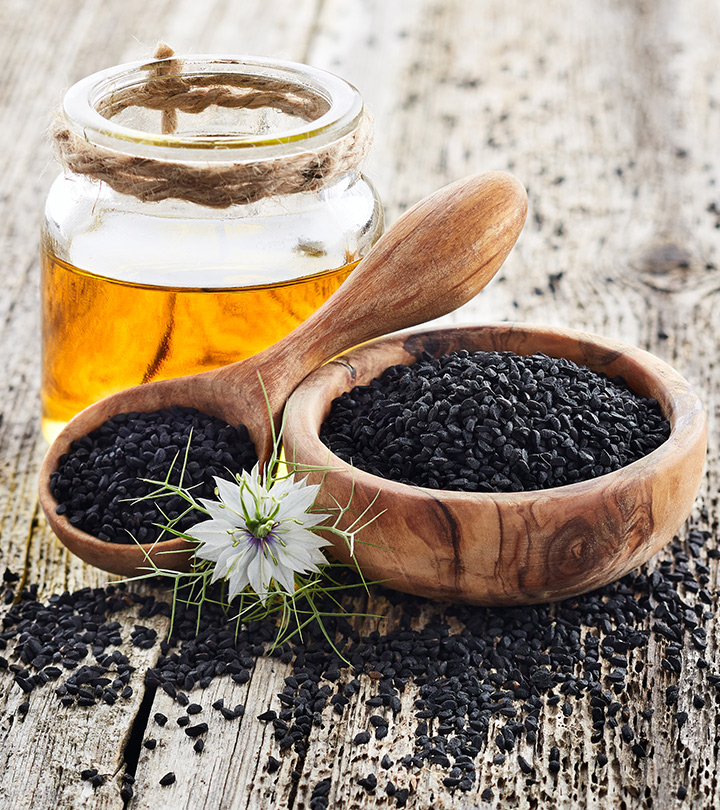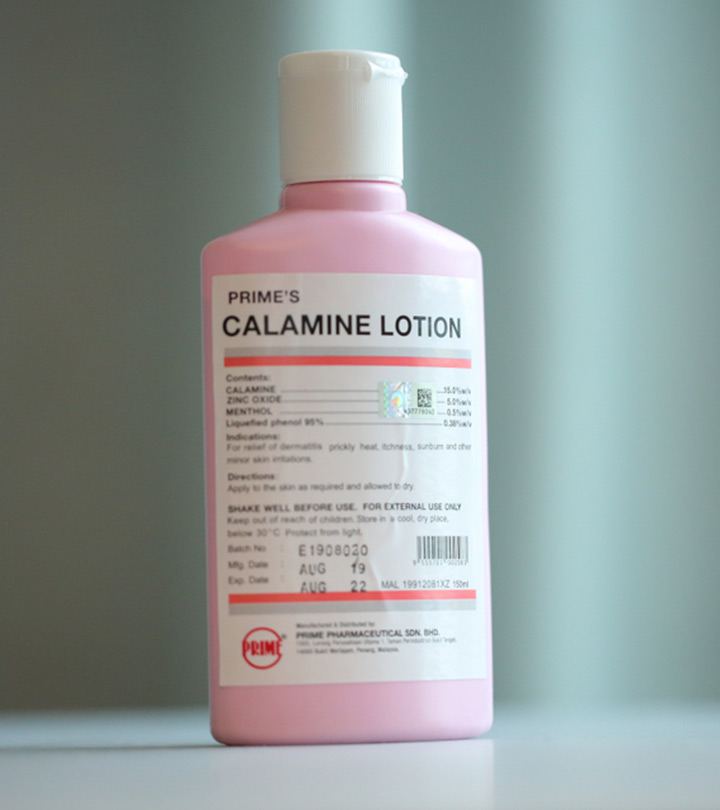Coconut oil helps to keep the skin smooth and hydrated. It is loaded with natural fats and anti-inflammatory properties and helps you in several ways. You may use coconut oil for skin issues and improve its texture and appearance. It is also a common ingredient used in many home remedies and commercial skin care products.
Keep reading to learn the benefits of coconut oil and how to use it on the skin.
In This Article
What Is Coconut Oil?
Shutterstock
Coconut oil is highly saturated and edible oil extracted from raw or dried coconut kernels. It is 100% fat, and about 80%-90% of it is saturated fat. That is why coconut oil solidifies at low or room temperatures. It is rich in fatty acids like (1):
- Lauric acid (49%)
- Myristic acid (18%)
- Palmitic acid (8%)
- Caprylic acid (8%)
- Capric acid (7%)
- Oleic acid (6%)
- Linoleic acid (2%)
- Stearic acid (2%)
Stylecraze TriviaCoconut oil is extracted from the milk, flesh, and wick of coconuts through a wet or dry process. A simpler method of making the oil involves boiling the flesh in water on a slow fire.
It also contains trace amounts of monounsaturated and polyunsaturated fats. Coconut oil offers some amazing skin care benefits. Find out what they are in the next section.
Benefits Of Coconut Oil For The Skin
Shutterstock
1. Protects The Skin Barrier
Coconut oil has anti-inflammatory properties and protects the skin barrier. It may be beneficial in soothing the symptoms of skin disorders like eczema and atopic dermatitis and restore the compromised skin barrier (2).
2. Minimizes UV Damage
UV exposure causes sunburn and premature aging. Topical coconut oil can prevent the damaging effects of UV rays on the skin and blocks 20% of the UV radiation (3), (4).
3. Promotes Wound Healing
A study on rats found that virgin coconut oil promoted collagen development and wound healing. The fatty acids and other components in coconut oil stimulate the fibroblasts (collagen-producing cells) and improve the antioxidant enzyme activities to heal wounds (5).
4. Removes Makeup
Shutterstock
Coconut oil can also be used for oil cleansing to remove makeup. It gently dissolves waterproof makeup and cleanses the skin .
5. Moisturizes The Skin
Coconut oil is rich in lauric acid and myristic acid. which makes it an emollienti XSubstances used to moisturize the skin because they have the ability to trap moisture and keep the skin smooth and hydrated. that softens and moisturizes the skin. It reduces transepidermal water lossi XThe water that evaporates through the skin; a method of measuring the skin barrier and identifying healthy and abnormal skin conditions. (TEWL) to improve skin dryness and texture (6).
There are a variety of ways to use coconut oil for your skin. Let’s check them out.
Ways To Use Coconut Oil For Skin
Shutterstock
1. Oil Cleanser
Massage your face with a few drops of coconut oil. Wipe it with a damp cotton cloth. Follow up with a facial cleanser to remove the remaining traces of oil and dirt.
2. Facial Scrub
Combine equal parts of coconut oil and brown sugar. Massage your face with this sugar scrub for a minute and wash off with lukewarm water. This sugar scrub exfoliates dead skin cells without damaging the skin. You can use it twice a week.
3. Facial Moisturizer
You can use coconut oil as a facial moisturizer and as a last step of your skin care routine to seal all the goodness of the products. Massage your face with a few drops of virgin coconut oil and wake up with soft and smooth skin.
Remember: If you have acne-prone or oily skin, avoid using coconut oil.
Related: Facial Serum Vs. Facial Moisturizer – What Is The Difference?
4. Cuticle Oil
The cuticles protect the nails and keep out bacteria. However, they may dry out and get damaged. Massage them with coconut oil to keep them nourished, hydrated, and healthy.
5. Shaving Gel
If you are shaving your legs or underarms, use coconut oil to lubricate the area to prevent cuts and ingrown hair. Coconut oil provides a perfect slip for a smooth shaving result. Additionally, its skin-soothing qualities keep the skin moisturized and protected.
StyleCraze TriviaCoconut oil is used as a base ingredient in many soaps. These soaps have a rich lather even in salt and hard waters. They come with all the skin benefits of coconut oil.
Always use pure, organic, and virgin coconut oil on your face for the best results. Avoid oils that contain preservatives and other additives. Do a patch test to avoid any possible side effects of coconut oil.
Related: How To Shave Your Legs Properly & Tips To Avoid Blunders
Side Effects Of Coconut Oil
Shutterstock
If you have a nut allergy or are allergic to coconut oil, applying it may cause:
- Irritation
- Hives
- Itching
- Rashes
- Redness
Coconut oil is comedogenici XThe ability of a product or ingredient to cause acne and blackheads by clogging the skin pores. . If you have acne-prone or oily skin, it may aggravate the breakouts. If you have oily skin and are on antibiotics or have low immunity, do not apply coconut oil on the face as it may aggravate bacterial and fungal spread due to its comedogenic nature.
Related: 21 Home Remedies To Get Rid Of Rashes On The Face + Diet And Prevention Tips
In A Nutshell
Coconut oil is a highly nutritious oil that is commonly used in skincare products and several home remedies. Its anti-inflammatory properties and emollient properties make it ideal for protecting the skin barrier, slowing down premature aging, and moisturizing the skin. You can use coconut oil for your skin as an oil cleanser, facial moisturizer, or shaving gel. People with a nut or coconut allergy should avoid using coconut oil. If you experience side effects such as redness, irritation, or hives, stop its usage immediately and consult a doctor.
Subscribe


















